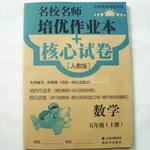题目内容
What some teenagers don’t realize is ____ difficult life can be if they get addicted to drugs.
A. how B. what C. that D. why
A
解析:
略

 小博士期末闯关100分系列答案
小博士期末闯关100分系列答案 名校名师培优作业本加核心试卷系列答案
名校名师培优作业本加核心试卷系列答案Mearl Jacobs’ body was at the funeral home. The memorial service was 31 for the next day. We 32 in the family room to tell stories, sharing 33 of her. She had lived a life 34 with stories. Most people didn’t know that she had worked for thirty years at Rockwall International to help the homeless, or that 35 she really didn’t care much for baseball, she loved listening to the 36 because her son loved baseball.
Before long the 37 turned from stories about Mearl to stories of how she changed and 38 the lives in the room.
Her daughter Carol, said, “Just a few hours before Mom died she said she wanted to go home. I asked her if she 39 back to her apartment. She said, ‘NO!’ I asked, ‘Home in Heaven?’‘YES!’”
A series of love and 40 was realized that night. Mearl had lived a life that affected the young and old 41 . When she did so, you became a different person, a 42 and reformed person. She was 43 that way. She knew how to show the things that really 44 in the life. She 45 for values that she held dear and she always seemed to know how to influence people and to accept them “as is”. He grandkids talked of her 46 acceptance of them, no matter what.
Some things have to be seen to be understood, such as love, forgiveness and acceptance. Mearl knew how to help you 47 . She had always shown total 48 to the family and friends – to people.
The next day Mearl was 49 the topic. We buried the body, but she lives in all those, present and 50 . She is always there, giving and lovin g.
g.
| 【小题1】 |
|
| 【小题2】 |
|
| 【小题3】 |
|
| 【小题4】 |
|
| 【小题5】 |
|
| 【小题6】 |
|
| 【小题7】 |
|
| 【小题8】 |
|
| 【小题9】 |
|
| 【小题10】 |
|
| 【小题11】 |
|
| 【小题12】 |
|
| 【小题13】 |
|
| 【小题14】 |
|
| 【小题15】 |
|
| 【小题16】 |
|
| 【小题17】 |
|
| 【小题18】 |
|
| 【小题19】 |
|
| 【小题20】 |
|
Catherine and I were on our way to our nephew’s birthday party one rainy Saturday morning, driving along what some people call moose(驼鹿) alley. It was early, there were few other cars on the road and we were looking forward to a good day with the family. Suddenly, a moose rushed across our path. Fortunately, a quick swerve(突然转向) to the other lane prevented a full impact, with only a small collision on the right side of our car ripping off the mirror and knocking the moose to the pavement.
By the time I stopped and looked back in my rear view mirror, the moose was getting up. It ran into the bush. Shaken but unharmed, we both looked at each other shocked by what had happened. We knew that moose accidents had claimed many lives throughout the years, and that we had been very fortunate to escape with no personal injury or worse. After a quick check of our vehicle, we drove off.
Even though the moose accident lasted just a few seconds, we still remember it to this day. Why?
We had often talked about the frailty of life, the here today and gone tomorrow potential we all face, but it had never felt so real. And it wasn’t that we hadn’t had friends, relatives and colleagues die before, it was that this experience was much more personal. In a matter of seconds, lives can easily change.
The effect of that one near miss with death has been positive, and made us appreciate life. Each one of us has only a limited time on this Earth; no one can predict when your time will end. We should give thanks for each day, to see the sun rise again, and to know that you can accomplish and assist others to appreciate their life if they are caught in the “poor-me” syndrome(综合症状).
【小题1】What can we learn about the accident form the first two paragraphs?
| A.Fortunately, they didn’t hit the moose. |
| B.They themselves were slightly injured. |
| C.Many people have died from similar accidents. |
| D.The author should be blamed for the accident. |
| A.Being open to unexpected turns in life is important. |
| B.Life is long if you know how to use it. |
| C.Life is measured by thoughts and actions, not by time. |
| D.Life is unpredictable, so we should treasure every moment. |
a. being thankful and helpful
b. appreciating the natural beauty of the world
c. being confident
d. making every effort to succeed
| A.ab | B.bc | C.abc | D.bcd |
A few years ago I had an “aha!” moment regarding handwriting.
I had in my hand a sheet of paper with handwritten instructions on it for some sort of editorial task. It occurred at first that I did not recognize the handwriting, and then I realized whose it must be. I finally became aware of the fact that I had been working with this colleague for at least a year, maybe two, and yet I did not recognize her handwriting at that point.
It was a very important event in the computerization of life---a sign that the informal, friendly communication of people working together in an office had changed from notes in pen to instant messages and emails. There was a time when our workdays were filled with little letters and we recognized one another’s handwriting the way we know voices or faces.
As a child, visiting my father’s office, I was pleased to recognize, in little notes on the desk of his staff, the same handwriting I would see at home in the notes he would leave on the fridge---except that those notes were signed “dad” instead of “RFW’.
All this has been on my mind because of the talk about The rise and Fall of Handwriting, a book by Florey. She shows in her book a deep concern about the fall of handwriting and the failure of schools to teach children to write well, but many others argue that people in a digital age can’t be expected to learn to hold a pen.
I don’t buy it.
I don’t want to see anyone cut off from expressive, personal associations that a pen still promotes better than a digital keyboard does. For many a biographer, part of really getting to know their subjects is learning to read their handwriting.
What some people advocate is teaching one of the many attractive handwritings based on the handwriting of 16th-century Italy. That may sound impossibly grand---as if they want kids to learn to draw by copying classical paintings. However, they have worked in many school systems.
【小题1】Why was the author surprised at not recognizing his colleague’s handwriting?
| A.He had worked with his colleague long enough. |
| B.His colleague’s handwriting was so beautiful. |
| C.His colleague’s handwriting was so terrible. |
| D.He still had a lot of work to do. |
| A.talk more about handwriting |
| B.take more notes on workdays |
| C.know better one another’s handwriting |
| D.communicate better with one another |
| A.are harder to teach in schools | B.attract more attention |
| C.are used only between friends | D.carry more message |
| A.thinks it impossible to teach handwriting |
| B.does not want to lose handwriting |
| C.does not agree with Florey |
| D.puts the blame on the computer |